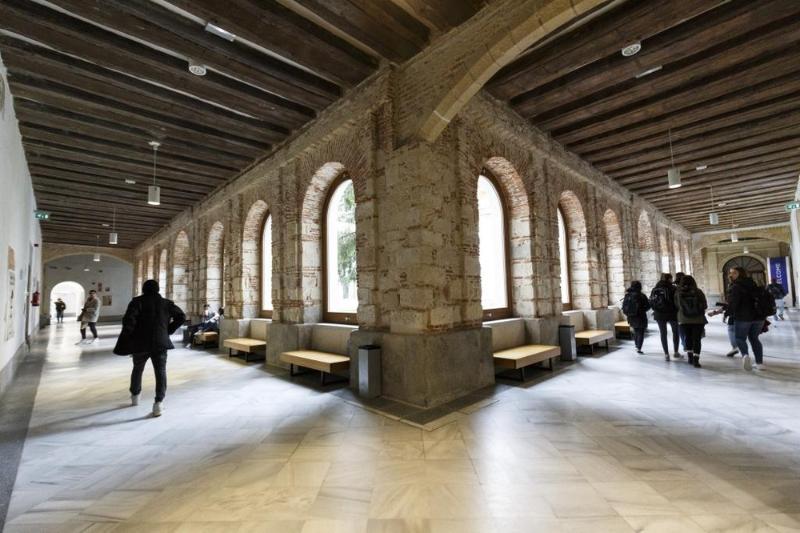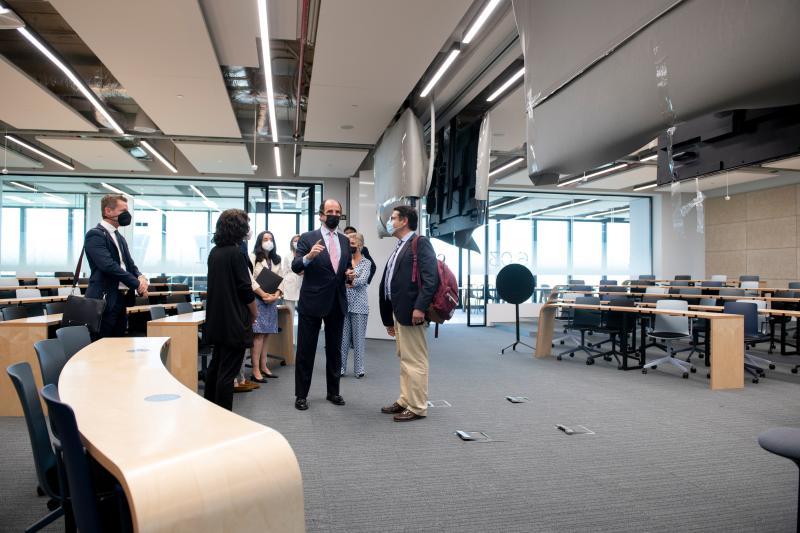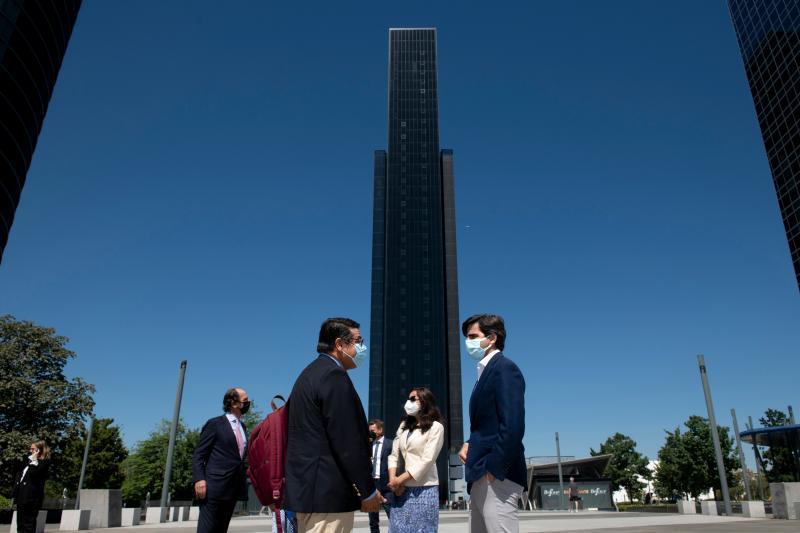IE University in Spain uses lessons learned during pandemic online education to offer a rich experience at home or on campus.
By Lorenzo Squintani
Reaching out to students and keeping them motivated was a big challenge for Pilar Galeote during the pandemic.
“You have to find innovative ways to keep students engaged while teaching online,” says Galeote, a professor at IE University in Madrid for more than 20 years. “We used new technology, combined many teaching methods and introduced more challenging exercises and business cases to make the classes more engaging.”
Universities across Europe were forced to adapt quickly to new ways of teaching during the COVID-19 crisis. They had to speed up decision-making processes, increase their digital capabilities and become more innovative in the classrooms. To make sure students did not fall behind, professors adjusted class structures, reorganised many teaching methods and searched for creative ways to keep students coming back each day to classes held on a computer or tablet.

The plan to make IE University more energy efficient and sustainable includes a restoration of the Convent of Santa Cruz de la Real in Segovia, above. The 15th-century building is the university’s historic campus
Choosing between campus or home
With experience gained during the COVID-19 crisis, the European Investment Bank and IE University worked together on an investment plan to dramatically improve teaching at home and on campus. The university, a private international institution based in Madrid, signed a €15 million loan with the Bank in June to introduce new video equipment, computers and other state-of-the-art technology into many parts of the university while making the campuses more sustainable.
The deal will help IE University expand a teaching process known as liquid learning, which lets students attend classes on campus or at home with the same immersive experience. IE University is a pioneer in Europe in the field of online graduate school programmes. During the pandemic, the university made a special commitment to improve liquid learning, make educational offerings more innovative and better integrate classroom learning on campus with online courses at home. This has allowed students to work successfully and independently wherever they are located. The EIB loan that will assist this project could be extended by another €15 million in 2022 if the university decides to make more improvements.

EIB Vice-President Ricardo Mourinho Félix visiting IE University’s innovative classrooms equipped with several cameras, screens and microphones to provide students an immersive experience on campus or at home.
Enhancing hybrid classrooms
“The investment will allow us to continue transforming our students’ learning experience,” says Jaime Úrculo, the chief financial officer at the university. “Our classrooms will be equipped with new technological tools to provide students with an excellent experience, both face-to-face and remotely. For example, we will have hybrid classrooms that will be equipped with several cameras able to offer different shots of teaching sessions in high resolution. We are trying to bring the classroom experience into the home.”
IE University also will renovate many parts of the María de Molina campus in the financial district of Madrid and add the finishing touches to the IE Tower, its new headquarters and one of the tallest buildings in Madrid. Investments will be made to restore the Convent of Santa Cruz de la Real in Segovia, a 15th-century building northwest of Madrid that is the historic campus of the university. The Palacio de Mansilla in Segovia also will be renovated to become a student residence.
“The investments will benefit our students, faculty, staff, corporate partners and our community of more than 65,000 alumni in 165 countries,” Úrculo says, because the work will allow everyone to have greater access to the institution’s academic resources when visiting the campuses or connecting online.
There also are climate and environmental benefits. The renovations will make the buildings more energy efficient by improving heating, cooling and ventilation systems. The IE Tower was built using advanced low-energy technology and has already received awards for sustainability, water efficiency and energy performance.

EIB Vice-President Félix outside the IE Tower, the university’s new headquarters in Madrid that has won awards for efficiency and sustainability.
Education lifts the economy
The European Investment Bank works hard to support education and skills training because these are key ways to help the economy, create jobs and make society more inclusive. The Bank has invested more than €47 billion in the education sector since 2000.
“We are an important financing source for private sector education,” says Alejandra Manzanares-Johnsen, an EIB loan officer. “Our aim is to support their long-term sustainability.”
Investments in innovation and new teaching methods are key ways to improve education and skills, adds Vasilis Kostopoulos, another EIB loan officer who worked on the deal for IE University. “Students will benefit from these types of investments because the changes will make them better prepared for the skills required in society today,” Kostopoulos says.
Galeote, the IE University law professor, says it is important to constantly update the tools of education to ensure that everyone has an opportunity to participate.
“We will only have a democratic society if we can assure that everybody can develop his or her own capabilities,” she says. “To achieve this goal, all of us should have the right to access all the knowledge and resources available. Education is a lifelong learning process, and we need to invest in it constantly.”